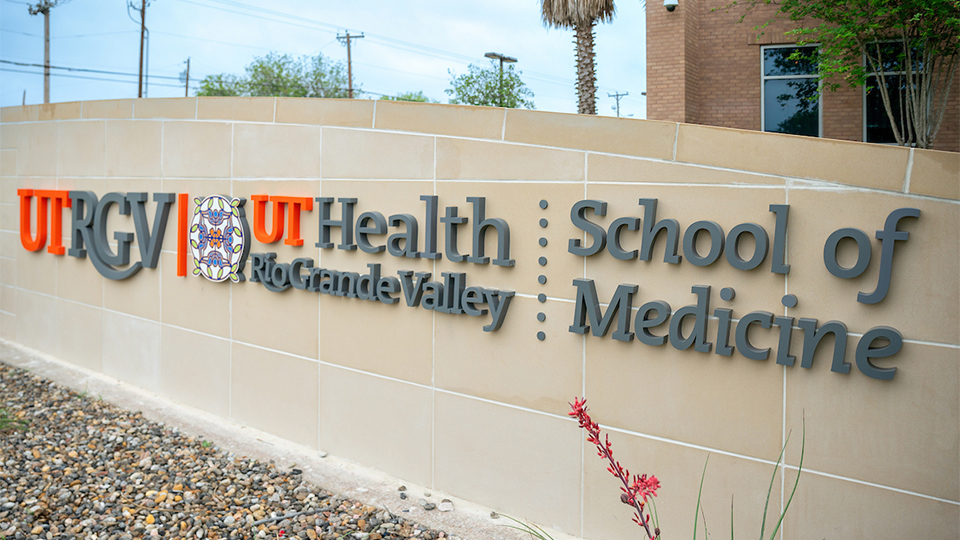- November 25, 2024
UT Health RGV health expert talks vaccinations

Stay prepared this flu season
The year’s final months tend to mean holiday traditions, food, family, and (unfortunately, the return of) flu season and other pesky viruses.
As temperatures drop, it’s easy to forget how quickly respiratory viruses can spread in close-knit environments.
Parents hoping to avoid runny noses and sleepless nights should be mindful of the serious risks these symptoms can pose, especially for children and older people. Coughs and sneezes may seem minor but can lead to more dangerous conditions.
Dr. Laura Manzanilla Luberti, Family Medicine doctor at UT Health RGV, said Valley residents can stay ahead of potential illness by getting vaccinated against the flu, COVID-19, and Respiratory syncytial virus (RSV).
“These vaccines are important for protecting not just yourself but also vulnerable populations like the elderly, young children, and those with underlying health conditions,” she said. “By getting vaccinated, we reduce the risk of severe outcomes, including hospitalizations and death.”
IMPORTANCE OF VACCINATION
The flu, COVID-19 and RSV pose significant risks, particularly for individuals with weakened immune systems, seniors and infants.
RSV, a lesser known but dangerous virus, can lead to severe respiratory infections, especially in young children and older adults.
According to the Centers for Disease Control and Prevention (CDC) just last season, in 2023, more than 916,300 people were hospitalized due to COVID-19, and over 75,500 lives were lost to the virus. Flu complications claimed an additional 44,900 lives during that same season.
Manzanilla Luberti said vaccination is the most effective way to reduce these numbers.
“We know some people are hesitant because of concerns about side effects, but vaccines go through rigorous testing,” Manzanilla Luberti said. “Vaccines protect and help prevent the spread of these viruses in our communities. It’s about protecting ourselves and those around us, especially the most vulnerable.”
The CDC recommends the RSV vaccine for adults 75 years and older and for pregnant women in their third trimester to help protect newborns from severe respiratory illness after birth. Pregnant women should receive the vaccine between 32-36 weeks. All infants whose mothers didn’t receive the vaccine during pregnancy, as well as some children ages 8-10 months at increased risk for severe RSV, should also be considered for RSV protection. Flu and updated COVID-19 vaccinations are recommended for anyone six months or older.
WHEN TO SEEK HELP
Recognizing the symptoms of flu, COVID-19, and RSV is critical for early intervention, said Manzanilla Luberti.
Common symptoms of these respiratory illnesses to look out for include:
- Fever,
- Chills,
- Muscle aches,
- Cough,
- Sore throat, and
- Shortness of breath.
Children may also experience nausea, vomiting, or diarrhea.
Manzanilla Luberti said that anyone showing signs of respiratory distress — such as difficulty breathing, bluish lips, chest pain, or extreme fatigue — should seek immediate medical attention.
“Parents should be vigilant regarding their children,” she said. “If you notice symptoms like fast breathing, dehydration, or a fever that persists despite medication, it’s time to call your doctor or visit the emergency room.”
Manzanilla-Luberti recommends vaccinating early to ensure protection during the season’s peak.
“Vaccinating early gives your body time to develop protection before virus season peaks, which usually occurs between the beginning of fall and the end of spring,” Manzanilla Luberti said.
She said that patients most often wonder if they can get all three shots at once—flu, COVID-19, and RSV—and the answer is yes.
“It’s safe to receive them together,” Manzanilla Luberti said. “This can be convenient for people looking to streamline their protection.”
Manzanilla Luberti added that in addition to vaccines, precautions such as:
- Regular handwashing,
- Avoiding large gatherings during peak illness season, and
- Wearing masks in crowded spaces can help reduce the risk of infection.
“Vaccination remains our strongest defense against severe illness,” she said. “No matter your age, it’s important to stay protected. Getting vaccinated not only protects you but the community that you live in.”
For more information on vaccines, visit UTHealthRGV.org.

